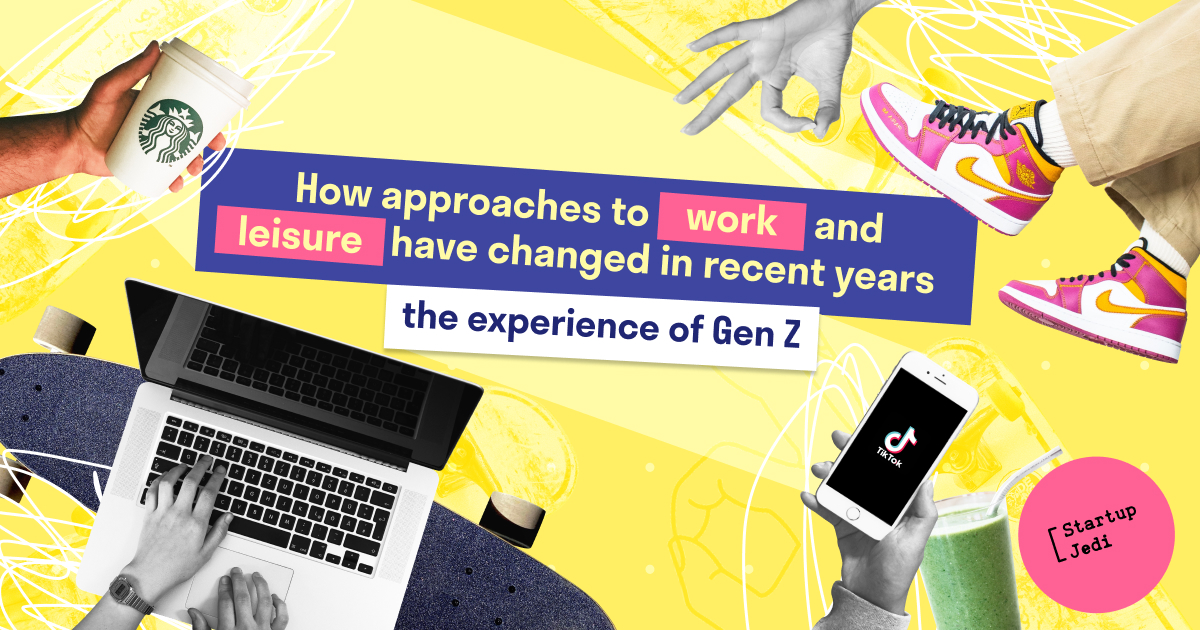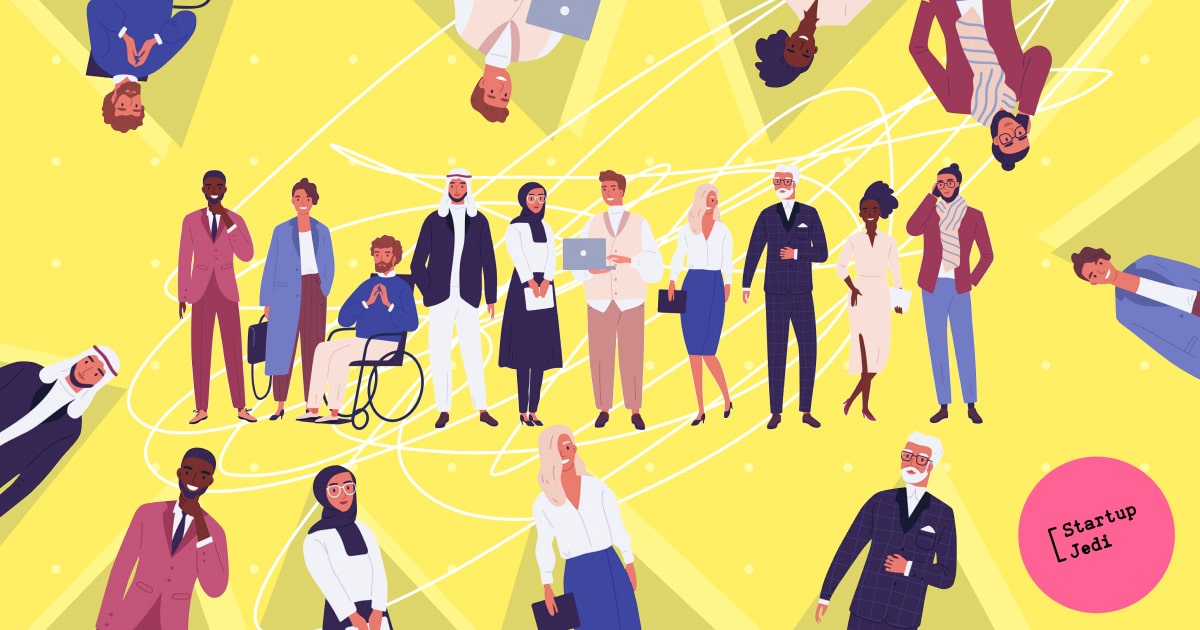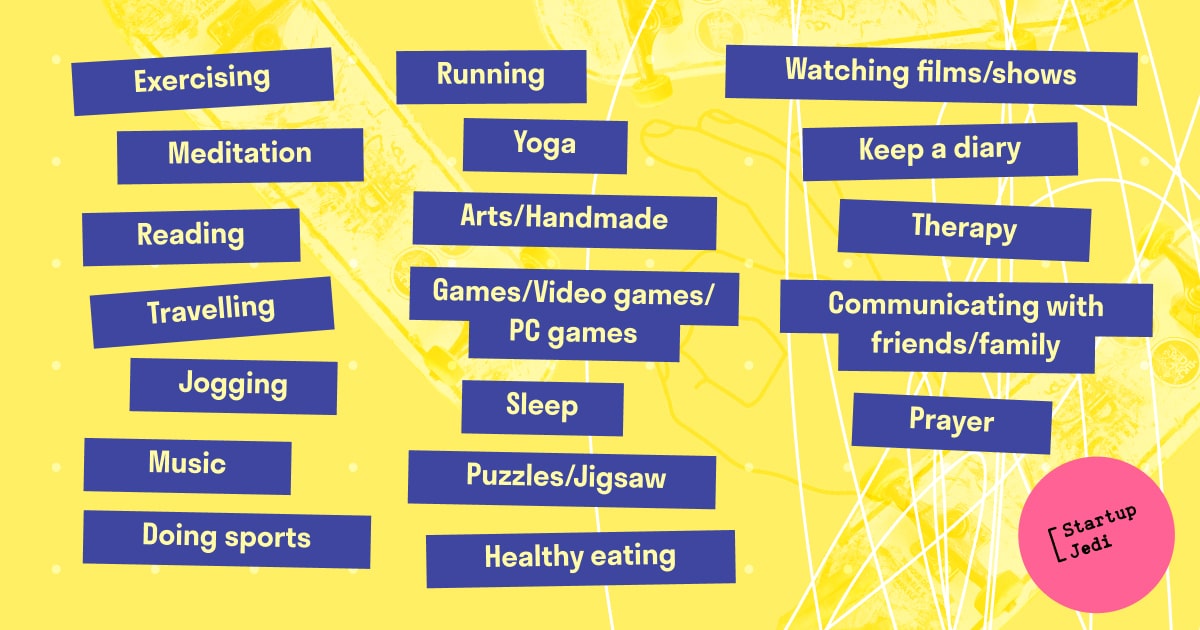
Startup Jedi
We talk to startups and investors, you get the value.

Startup Jedi
We talk to startups and investors, you get the value.
Choose a job you like and you won't have to work a single day. It seems to be Confucius. And it seems that each of us has his own understanding of this wisdom. Let's summarize a little and talk about what changes in the traditional attitude to work are brought by Generation Z. What do its representatives value? What are they avoiding? How to motivate them and what kind of vacation do they prefer? You will learn about all this in a study on a new insight from the Founders Club startup studio.

First, let’s figure out how to divide the employees into generations and what is the peculiarity of the work attitude of each generation.
Traditionalists are people born between the late 1920s and 1945, and currently account for only about 3% of the workforce. Raised on strict rules, this generation is accustomed to being driven by incentives to achieve their goals. Traditionalists are loyal and love to help others. They are very conscientious workers. They are motivated by the position itself, as well as the size of the salary and bonuses. They prefer formal relationships to a relaxed work atmosphere.
Baby boomers are those who were born in 1946-1964. During these years, there was an increase in the birth rate, since, after the end of World War II, people were more optimistic about the economy and the future. Representatives of this generation are hardworking, ambitious, and pay attention to status. Baby boomers aren’t afraid to take risks to achieve their goals, pay attention to their careers, and find it difficult to find a balance between work and personal life. They don’t need constant feedback on the work done, their goal is career growth. At the same time, they are interested in sharing the experience with other employees.
Generation Х were born between 1965 and 1980. This is a generation of independent people who pride themselves on their entrepreneurial spirit. At work, they strive for innovation and efficiency, they aren’t afraid to take risks, they value the opportunity to make decisions on their own and move up the career ladder.
Generation Y or Millennials are all those who were born in 1981— 1996. They value work that will allow them to grow professionally and use their creative skills. This generation prefers to be judged by the results of the work done. Millennials can work at multiple companies at the same time in order to find jobs that they truly enjoy. Generation Y people value the opportunity to gain new knowledge, mentoring, and constant feedback.
And finally, the Generation Z representatives were born between 1997 and 2015 and they are only beginning their career path. Let’s figure out why they are special and what their work attitude is.

Generation Z begins their career path with the changes that the pandemic has brought to the work organization, this includes the choice (to work remotely or in the office), and numerous online meetings and corporate events, and the inability to get to know some team members in real life, simply because thanks to the remote work, some prefer to do it from another country.
What is the peculiarity of Gen Z’s work attitude?
Work becomes more like a short-term “project”.
Research shows that the younger generation has a preference for short-term jobs and projects over long-term careers. Gen Z plans to leave their current employer after less than three years, according to a 2019 survey by Yello Recruiting, the company that develops a talent acquisition platform. And only one in four plans to stay in one company for 5 or more years.
The survey participants explained this by the fact that they see a bonus in changing jobs, specifically more money, more experience, and career advancement. By the way, 83% of respondents (representatives of Generation Z) are ready to leave their current employer if they don’t provide them with career opportunities.
Additional responsibility, the possibility to acquire new knowledge and experience, real career growth motivate the young generation to stay longer at the workplace.
Need for dynamics.
Young employees are discouraged by companies with complex business processes, lengthy emails and reports. Gen Z switches between tasks every 19 seconds on average, it is illustrated by the skyrocketing social network TikTok with 15 seconds videos.
Gen Z is used to being responsive. If the organization has slow recruitment processes, chances are high that young job seekers simply won't wait for an offer.
Attention to the company's ethics and moral image.
For example, just a few years ago, an offer from a tech company was considered a golden ticket to the job seekers from Millennials’. This promised them a good salary, a high office culture, and an excellent social package.
But many Gen Z representatives think over the ethics of specific approaches in the techworld. They value the diversity policies (Tallo, 2020), equity, inclusiveness, and commitment that are being implemented in companies.
In particular, 67% of the surveyed Gen Z representatives who already work, reported that they had witnessed discrimination or prejudice on the basis based on race, ethnicity, sexual orientation, gender identity in the workplace. And 44% of the respondents noted that they personally faced such discrimination. 69% of those surveyed said they are more likely to come to work for a company that implements diversity approaches.

Interest in technologies.
Younger employees use traditional tools such as email and spreadsheets, but not to the same extent as older generations. For Gen Z, these are not the key tools for the job. Most of the Gen Z often turn to voice recognition applications, virtual assistants, design and drawing tools, as well as augmented and virtual reality applications.
Mobility and flexibility.
Generation Z is very mobile: its representatives are unlikely to prefer working only from home or only from the office. Z’s work from different locations: from coworking spaces, on the road, from different company offices, from another country. It is important for them that the employer doesn’t limit them in such a choice.
For companies looking to attract and retain this generation, it is important to make sure they offer them all the flexible workplace attributes they need. Employees should be able to choose whether to work remotely only partially or completely, they should have paid time for volunteering, exercise and therapy breaks, and another musthave is no strict dresscode.
Caring for personal data security. Compared to other generations, the youngest employees are more concerned about the security of personal data on the devices they use at work.
Importance of good interpersonal relations with colleagues, and understanding the role in the company.
Representatives of the younger generation have high hopes for active communication and strong ties. 60% of Gen Z employees emphasized that for them, it is important to have clarity about their expectations and parameters of their work, and 60% of young employees want prompt feedback, frequent communication and performance measurement.
Striving for economic security.
Many young employees are willing to work hard if rewarded with higher pay (including nightshifts and work on weekends) to provide the financial security they want.

Fast-track processes: for instance, project managers can provide constructive feedback immediately after a project is completed. This gives young employees a sense of continuous learning and improvement.
Preferring chats over email as work communication tools.
They are all right with the technical side of their work. Inaccessible wi-fi, non-intuitive interfaces, this is a no-go and no one has time for this, especially Gen Z. According to a Dell study, 80% of the younger generation prefer to work with advanced technologies: after all, they have been a part of their life since school. And when it comes to job choices, 91% say that technology will influence their job choices.
Those, who provide clear communication that is not burdened with formalities, at least at the hiring stage. Gen Z better perceives information in the video format and pictures, short messages or lists.
Those who care not only about immediate benefits, but also about the company's image, implement long-term projects aimed at solving environmental and social problems, and interacting with the community. At the workplace, all conditions have been created for people of different ethnicity, gender, sexual orientation, and people with disabilities to work.

Fair enough, that if Gen Z does such a thorough approach to choosing an employer, they are also scrupulous about the choice of vacation? Looks like it, but not quite.
Gen Z is characterized by emotional fragility and high anxiety. Representatives of this generation are more concerned with their mental health and are more vulnerable to the effects of news and social networks, than the three previous generations.
At the same time, Gen Z is very conscious. Young people understand their weaknesses and try to strengthen them. More than a third of Gen Z see a connection between emotional, physical, mental and spiritual well-being. Their rest is based on achieving harmony between these components.
Emotional well-being is at the core of most people's feelings of life satisfaction. Gen Z is the most emotionally affected by the negative impact of social media.
Thus, 40% of the research participants noted that they feel envious of the fitness beauty bloggers from their feed, 47% admit that they experienced pressure in terms of losing weight and getting in shape. This is further strong evidence that Gen Z is more worrisome than all the previous ones, even without considering the pandemic.
Demonstration of expensive hotels and resorts, restaurants, clubs on social networks creates a false feeling among the representatives of the generation, as if it should correspond to these social expectations. In reality, this is very difficult to achieve, which causes a feeling of disappointment in oneself and one's strengths.
Gen Z leisure time is almost always associated with suppressing anxiety, dealing with stress, and often with overcoming depressive thoughts. Here's what young people resort to rest, escape from problems and improve their mental and emotional state:

Everything’s pretty common, isn’t it?
The building blocks of physical well-being for Gen Z members are natural and organic agricultural products, training, including home exercise (these are relevant for 43% of Gen Z members). Representatives of this generation are very conscious about their lifestyle in terms of consumption, quite often they consider the possibility of becoming a vegetarian or vegan.
Mental well-being for this generation is primarily about the practice of mindfulness and meditation. Gen Z value the long-term benefits of these practices and believe it will help them build longer and happier lives and help them manage their mental health.
In terms of spiritual well-being, only 20% of Gen Z members are religious. At the same time, more than 80% have a sense of spirituality and believe in the power of the Universe/Space, they are also interested in such practices as tarot, astrology, meditation, energy healing.

Soon, Generation Z will be the largest age group of employees in the world, and a lot of research is being done to understand their consumer, work and leisure preferences.
When it comes to work, Gen Z prefers a minimum of formalities, relying on mobility, transparency, communication, feedback, efficiency. If you imagine an ideal company for a Gen Z representative, then you get a place where a person will rather relax in a mental, emotional, physical sense, besides all the work issues and deadlines. At the same time, the concept of recreation among the representatives of the younger generation is slightly distorted. Rest for them isn’t so much about replenishing their strength after work, but about fighting anxiety and stress, which are largely dictated by the influence of technology. Thus, Gen Z rests as much as possible at work, yet grapple with various triggers in their spare time.
What generation do you belong to?
Facebook: facebook.com/StartupJedi/
Telegram: t.me/Startup_Jedi
Twitter: twitter.com/startup_jedi
Comments